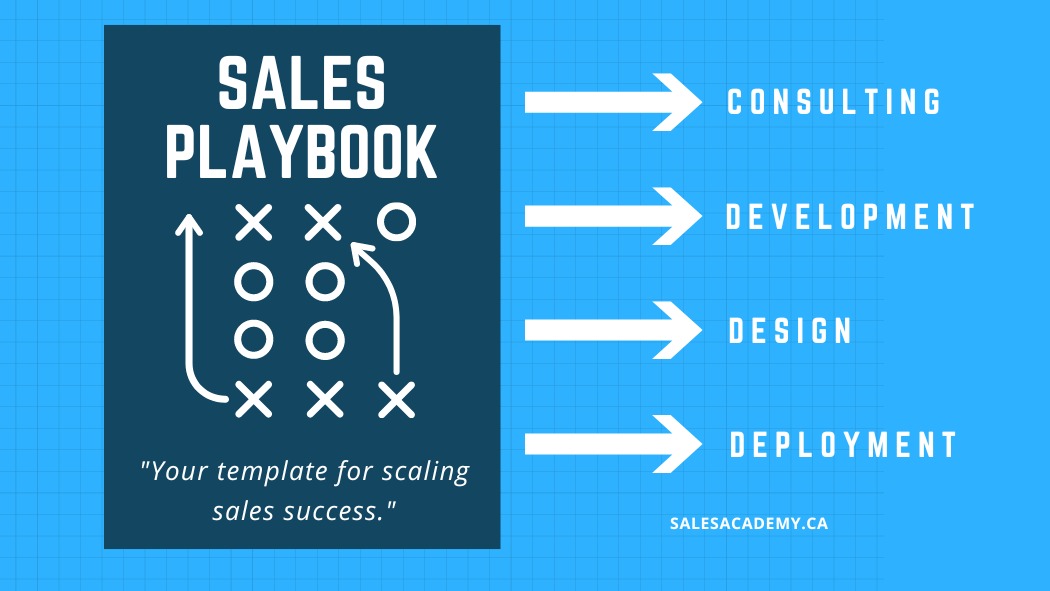To ensure a maximum ROI on your sales team, you need a robust onboarding process, a sales playbook and a well-structured sales coaching process, including a sales scorecard.
These tools should be well designed to help them ramp up quickly and systematically. The aim is to develop their skills iteratively in a structured manner.
Your Sales Playbook and Sales Scorecard can also be used as an on-going coaching tool and resource for your team. Many of our clients salespeople have found that using these tools for self-assessment and self-directed learning has been one the the primary methods of improving sales performance on their team.
How Sales Playbooks Impact Sales Management
Many sales managers are great leaders who effectively ensure their team executes best practices. With that said, most aren’t process or systems builders. Expecting a sales manager to build your sales system and act in a strategic sales enablement role may be setting them up for failure. Developing a sales playbook and sales scorecard gives them the process and key tools they need to keep their team and coaching on track and systemized.
The Aberdeen Research Group In-depth study on Sales Playbook ROI:
The Aberdeen Research Group did an in-depth study of 56 sales organizations in 2016 and found that those who had effectively implemented a Sales Playbook and sales plays had significantly better results in many areas compared to their competitors. Following is a summary of their most compelling stas:
Study: Those companies that build and implement Sales Playbooks:
- 3.9% better customer relationship management (CRM) adoption, compared with 2.9%
- 3.9% larger average deal size or contract value, compared with 2.8%
- 1.9% higher lead acceptance rate, compared with 0.9%
- 0.9% shorter average sales cycle, compared with 0.5% longer cycle
Here’s a short Instagram Video where Shane Gibson sales author talks about this scenario:
Unfortunately, it’s quite common to start salespeople off with just some product knowledge, teach them how to use a CRM, give them once off sales training on the necessary steps to close a deal, and then leave them to their own devices. This approach often relies on the hope that through a high volume of calls and exhausting good leads, they’ll somehow improve or understand the business.
However, by refining your onboarding process, you can reduce this ramp-up time. You can enhance their productivity or ascertain whether they are not a good fit more quickly.
This is achievable if you have a solid sales playbook, sales scorecard, and an intensive coaching process in place. Especially in the early stages, it’s vital to determine how to help someone improve and integrate into your sales culture and process faster.
Alternatively, if they’re not a good fit, you need to identify this early on. Doing so will prevent potential damage from a misfit and stop them from burning through a pile of poor leads.
Investing in your sales playbook and onboarding system, and developing strong coaching skills can drastically change how quickly you can ramp up sales professionals and grow your existing team. Likewise, it can expedite the process of moving out people who aren’t a good fit.
Learn more about our Sales Playbook Development and Consulting:



